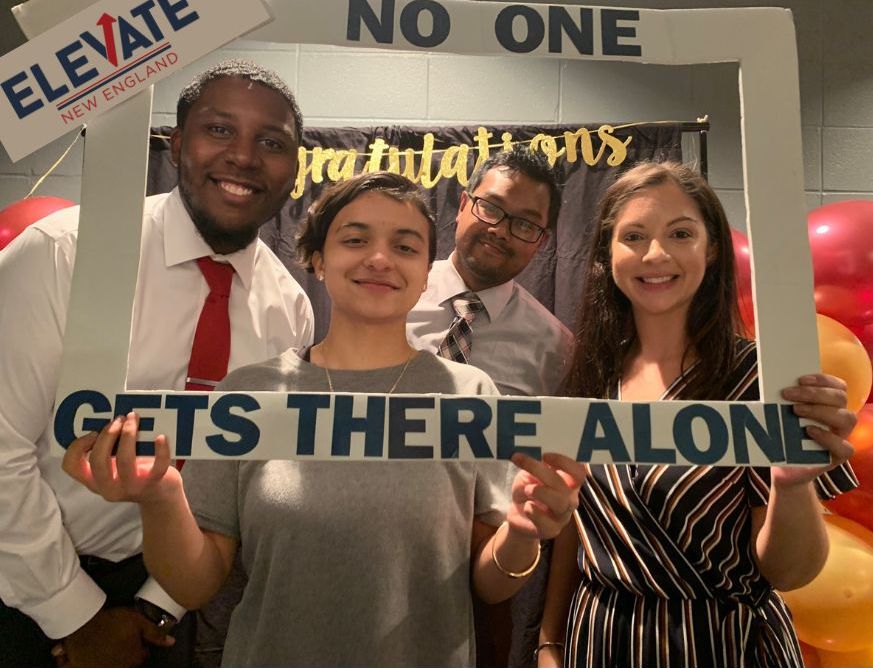What is Generational Poverty?
Generational poverty is a condition in which families experience poverty for multiple generations. Unlike situational poverty, which can be triggered by sudden events like job loss or illness, generational poverty is deeply rooted in systemic challenges and a lack of resources that stretch back decades.
When a family is in generational poverty, there is not only a lack of financial resources but also a lack of social and cultural support. Children growing up in these environments often have limited exposure to networks that can provide guidance, support, and opportunities. They may attend underfunded schools, live in neighborhoods with high crime rates, and lack access to extracurricular activities that build essential life skills. This environment can lead to a sense of hopelessness and a belief that poverty is an inescapable part of life.
Breaking the cycle of generational poverty is a complex, arduous task, but many organizations—including Elevate New England—have dedicated teams working daily to implement programs that provide families with the resources they need to break free of poverty.
Types of Poverty
Poverty is a complex issue. While no two situations of people experiencing poverty are exactly the same, it can be helpful to categorize different types of poverty to learn more about developing effective solutions.
Here, we’ll explore the four main types of poverty, providing insight into the issues that individuals face in each situation.
Absolute Poverty
Individuals who are experiencing absolute poverty lack the necessities for survival, such as healthcare, clothing, shelter, food, and access to clean water. Over time, absolute poverty can lead to malnutrition, severe health issues, and high rates of mortality. This type of poverty is most common in war-torn regions and rural areas where families struggle to access food and clean water.
Relative Poverty
This type of poverty includes those who have significantly lower incomes and resources than others in their communities. While it does not involve the same lack of basic needs as absolute poverty, it can still ostracize individuals socially and make it difficult for them to enjoy a good quality of life compared to others in their neighborhoods.
Situational Poverty
This short-term type of poverty is typically related to a crisis, such as job loss, economic downturns, natural disasters, or health emergencies. Typically, families are able to recover from this type of poverty as the crisis is resolved.
Generational Poverty
Lasting for several generations, generational poverty is a long-term, entrenched condition that results in a cycle of deprivation. Members of families experiencing generational poverty may struggle to break the cycle due to poor health, limited job opportunities, and low educational attainment.
Factors Contributing to Generational Poverty
Understanding the factors that contribute to generational poverty can be the first step to understanding the complex strategies necessary to break the cycle of poverty.
Survival Mindset
People who are living in generational poverty may adopt a survival mindset. When a person lives in constant fear that their basic needs may go unmet, it can become difficult to focus on the future. Living from one emergency to the next can reduce a person’s available mental capacity, leaving little room to explore free or low-cost educational programs, research job prospects, or learn about building wealth.
Inadequate Education
Education is essential to breaking the cycle of generational poverty, but many lack the resources to pursue it. Students in generational poverty often struggle to graduate high school due to inadequate support. Without a high school diploma, expected salaries are significantly lower, limiting economic opportunities.
Limited Resources
Living in poverty often means living with a lack of resources, including struggles to access healthcare, transportation, healthy food (many areas with high levels of poverty are classified as food deserts), proper housing, and mental health resources.
How Can We Break the Cycle of Poverty?
Thankfully, all hope is not lost when it comes to breaking the cycle of poverty. While hard work, ingenuity, and persistence are required to move forward from generational poverty, it is possible to come out on the other side.
Understand the Value of Education
Research shows that each year of education can increase a person’s income by up to 10%, and gaining access to a high-quality education can make it easier to break the cycle of generational poverty.
In Massachusetts, 78% of students in the Lowell School District graduate with a public education alone. However, 98% of students enrolled in Elevate New England’s programs successfully graduate, going on to university, trade school, the military, or securing their first job.
Work Towards Financial Literacy
A 2022 study showed that increased financial literacy reduced the levels of relative poverty, while increased financial knowledge reduced all types of poverty. Understanding financial terms and programs can help people living in poverty become less averse to risk, which can work to ease the anxiety of investment and other strategies that can lead to hefty financial gains.
Create a Growth-Opportunity Mindset
Shifting from a survival mindset to a growth-opportunity mindset is crucial in breaking the cycle of generational poverty. This involves helping individuals see beyond immediate crises and envision a future where they can thrive.
A growth-opportunity mindset encourages people to seek out and seize opportunities. This shift is fostered through support systems that provide not only resources but also mentorship and guidance. At Elevate, we emphasize the importance of setting and achieving goals, developing leadership skills, and fostering resilience.
Our teacher-mentors work closely with students to identify their strengths and passions, encouraging them to pursue higher education, vocational training, or entrepreneurial ventures. This empowerment builds confidence and opens doors to new possibilities, breaking the cycle of poverty and creating a ripple effect of positive change in their communities.
Seek Out Resources in Your Community
Breaking the cycle of generational poverty requires leveraging all available resources within the community. Resources like local non-profits offer educational programs, job training, and health support. Food banks, community health centers, and housing assistance programs can help meet basic needs. Public libraries provide free access to books, the internet, and workshops on financial literacy and job searching. Community centers host events and programs for networking and personal growth.
At Elevate New England, we’re proud to offer our support to those who need it most, providing accredited classes and dedicated teacher-mentors available 24/7 to help at-risk youth succeed and thrive.
Programs For At-Risk Youth With Elevate New England
We’re proud to offer a wide range of programs for New England youth, including:
- Accredited Classes: Our accredited classes focus on our key character qualities and life skills, allowing your child to bolster their educational and career toolbox with lessons that support the development of empathy, social awareness, drive, grit, and finding a sense of purpose.
- Mentoring: Our Teacher-Mentors work on the evenings, weekends, and over the summer to help New England youth discover their talents and interests.
- Adventure: We believe in challenging our students, and we use the challenges of hiking, biking, rock climbing, and more to support the development of teamwork skills and healthy self-esteem.
- College & Career: Our Pathways Manager works to support our students as they begin college, their first career, trade school, or military service.
At Elevate New England, we believe that no one gets there alone, and that’s why we show up. Join us in making a difference. Together we can support our youth and help break the cycle of generational poverty.

